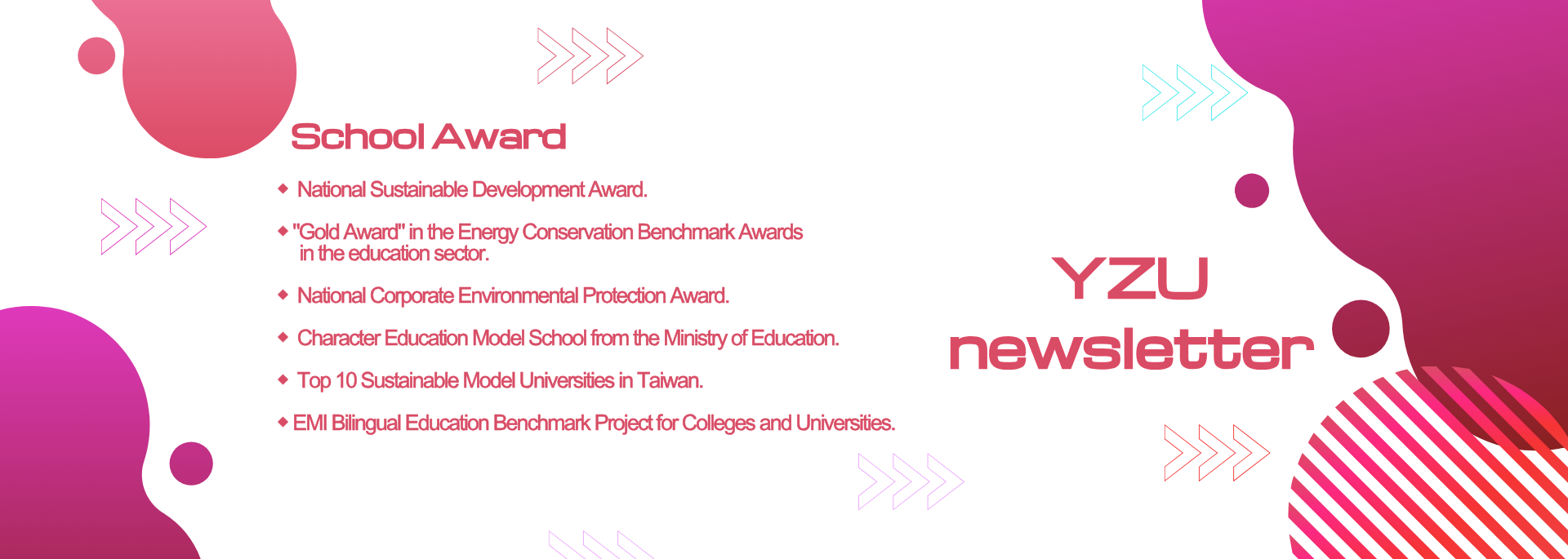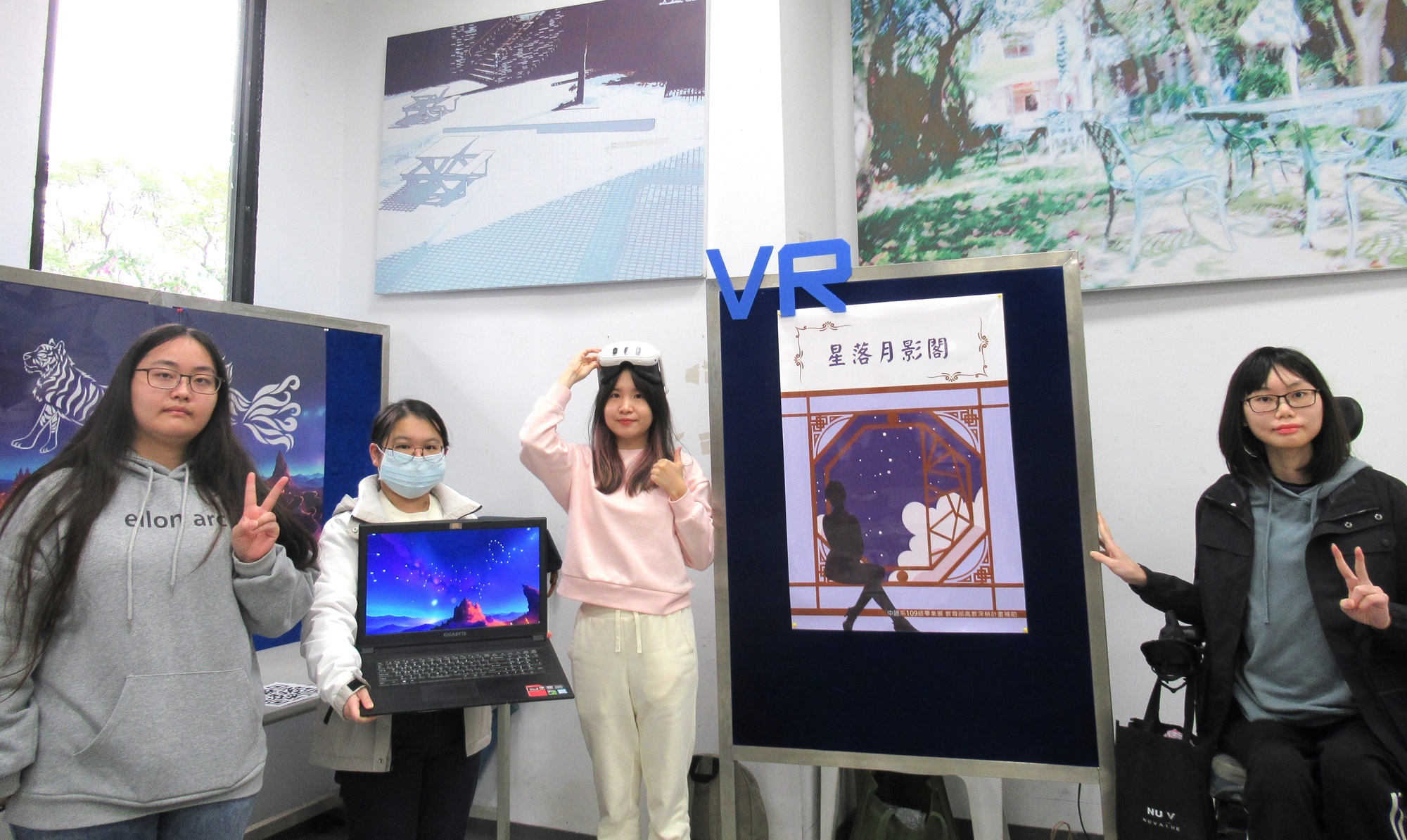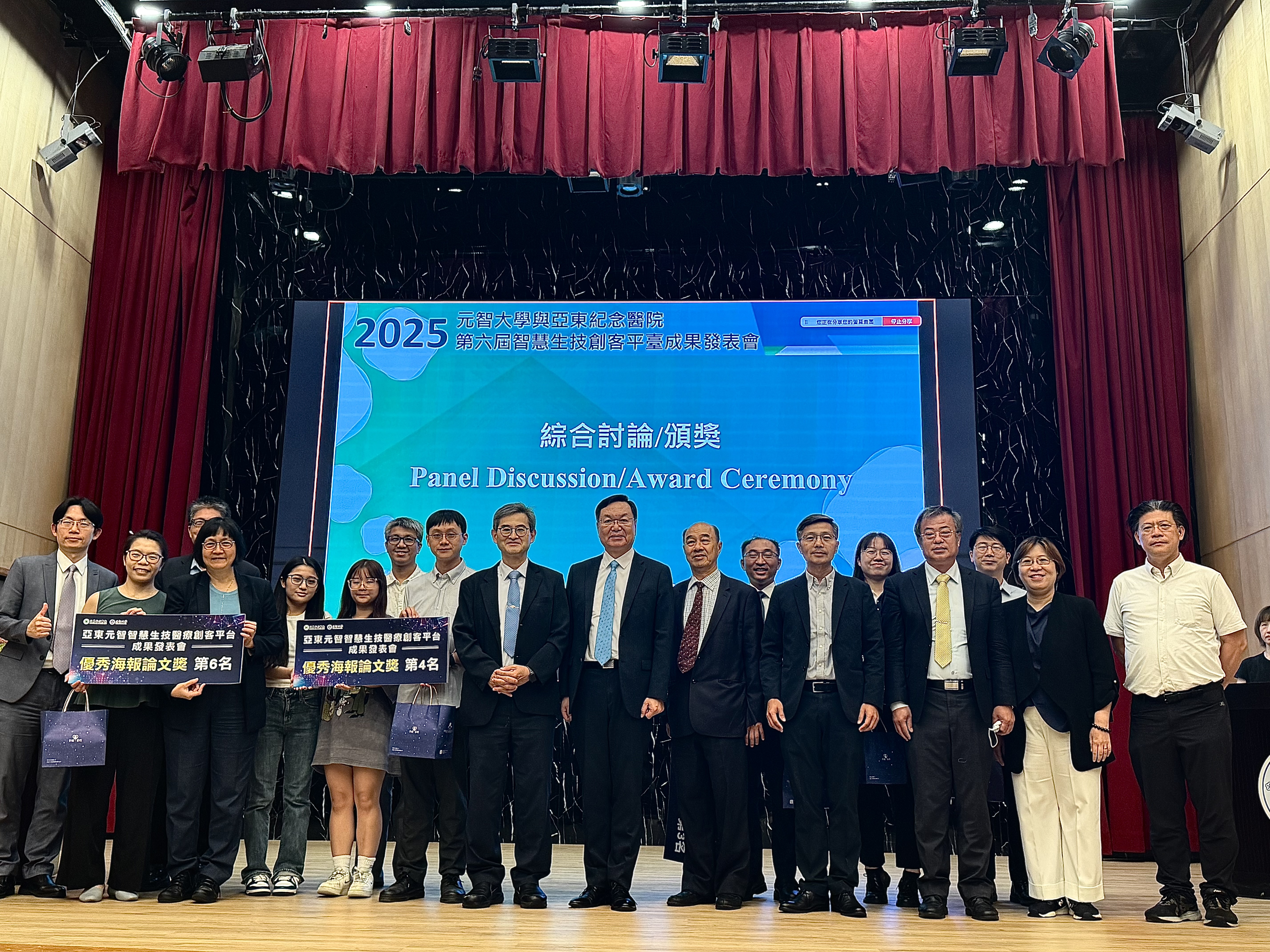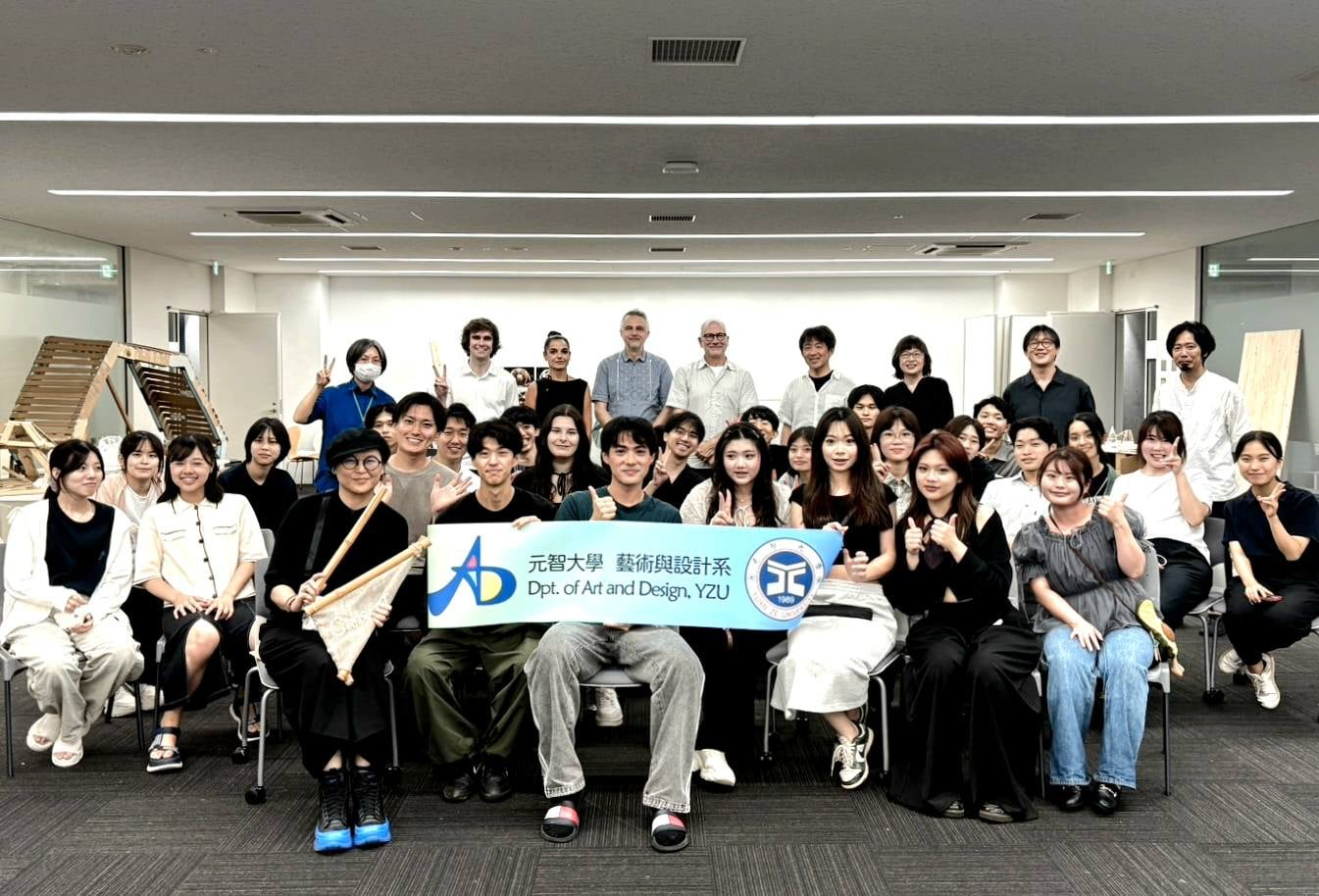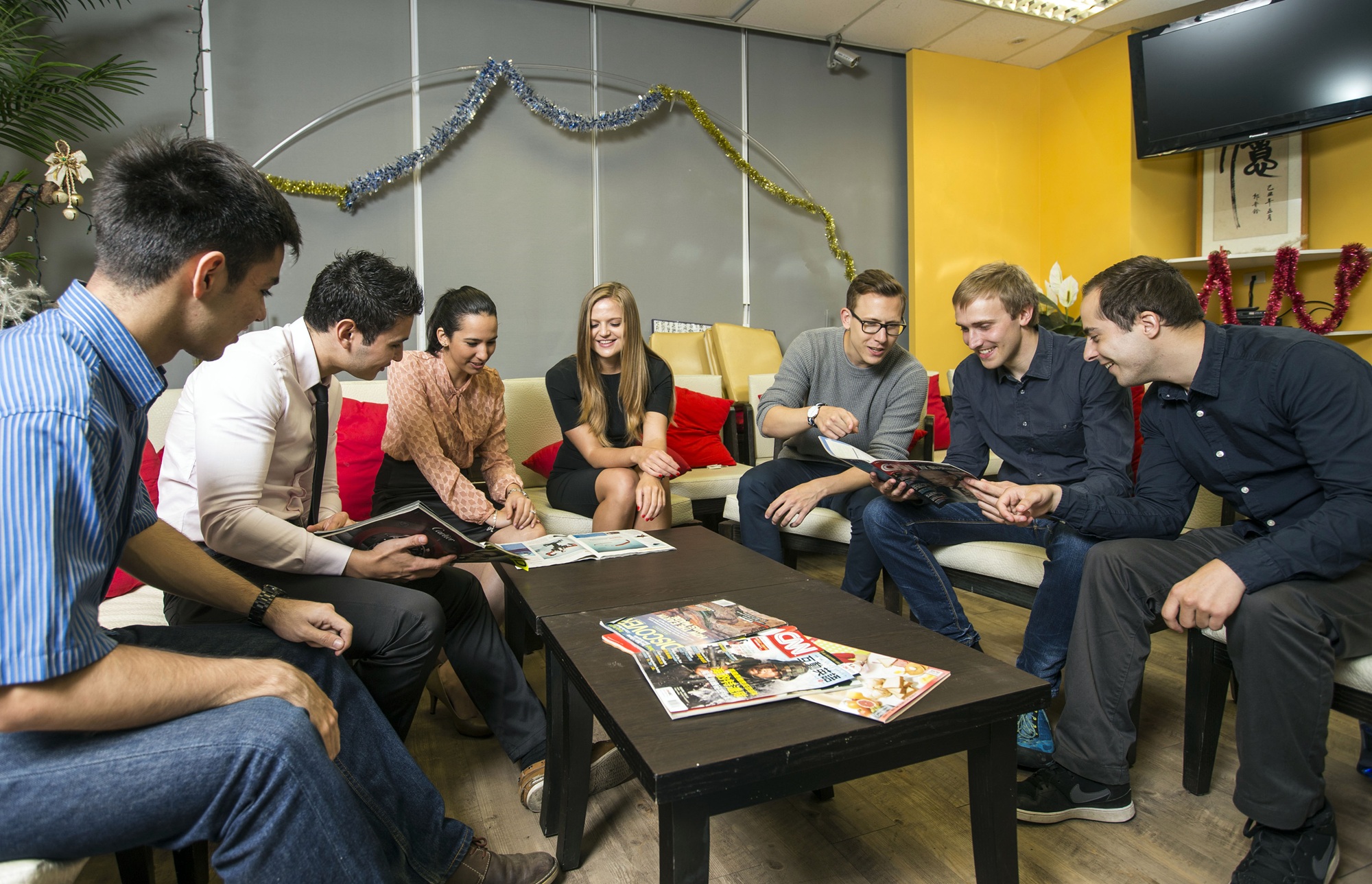Yuan Ze University’s Department of Chinese Linguistics and Literature continued to promote the integration of AI and creative language instruction, highlighting the renewed value of the humanities in the age of technology. Recognizing the importance of humanities education in the AI era, Synmosa Biopharma once again supported the department by offering scholarships to the top eight incoming students for the 2025 academic year.
Each student received a NT$10,000 scholarship in recognition of their outstanding academic performance and to encourage further learning. The scholarship aimed to help students cultivate both linguistic literacy and creative AI thinking.
In recent years, the department has actively developed programs in digital humanities and AI applications. The faculty team, grounded in strong expertise in language studies and innovative teaching methods, designed interdisciplinary curricula. Department Chair Shih-Hui Hung noted that the department included faculty members such as Chih-Ming Huang, Chi-Hung Lee, and Shu Yen, all of whom held doctoral degrees in Chinese literature and were experienced in AI-related language applications. The department was committed to cultivating students with both strong language skills and digital thinking to enhance their competitiveness in future job markets.
Synmosa Biopharma, known for its “S.S.S. Cold Medicine,” deeply understood the role of humanities education in the AI era. The company continued to support the department’s incoming students by providing scholarships, thereby laying a solid foundation for their future challenges by encouraging the development of linguistic proficiency and AI creativity.
This scholarship program covered both the 2024 and 2025 academic years. As the initiative entered its second year, scholarships were again awarded to the top eight incoming students for the 2025 academic year, with NT$10,000 granted to each recipient to honor their achievements and inspire academic motivation.
In the AI age, language ability serves not only as a communication tool but also as the foundation of creative thinking. Shih-Hui Hung explained that the department’s curriculum included hands-on courses such as practical media production, capstone projects, video game development, and digital humanities applications. For the 2025 academic year, new courses like digital image design and narrative arts in animation were added. These were offered alongside traditional courses such as editing and reporting, scriptwriting, calligraphy, Chinese painting, Chinese language teaching, and globalization and Chinese culture, forming a comprehensive digital humanities education framework.
Synmosa Biopharma expressed confidence in the department’s potential to merge humanities and technology. The company stated that it was proud to support innovation in Chinese language education and to foster modern talent with cultural depth and a strong sense of social responsibility.
Shih-Hui Hung emphasized that Synmosa’s continued sponsorship not only acknowledged the hard work and potential of the students but also represented the company’s strong endorsement of the department’s educational philosophy. Through industry-academic collaboration, the Department of Chinese Linguistics and Literature at Yuan Ze University continued to respond to the new expectations of humanities education in the digital era with innovative curricula and cross-disciplinary talent cultivation.
 English
English  正體中文
正體中文 